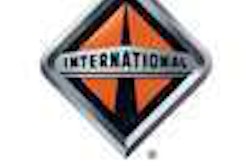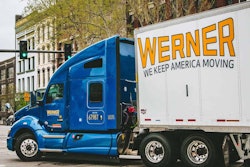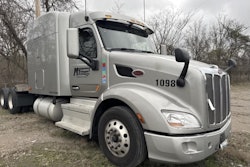Intermodal equipment providers (IEPs) will be responsible for establishing systematic inspection, repair and maintenance programs to ensure the safe operating condition of each intermodal chassis under a final rule to be published by the Federal Motor Carrier Safety Administration in Wednesday’s Federal Register.
The new rule, which is slated to take effect in six months, also would require IEPs to register with FMCSA and file an Intermodal Equipment Provider Identification Report (Form MCS-150C). In addition, IEPs will be required to maintain documentation of their maintenance program and provide a means to effectively respond to driver and motor carrier reports about intermodal chassis mechanical defects and deficiencies. IEPs will have to mark each intermodal chassis offered for transportation in interstate commerce with a U.S. Department of Transportation identification number.
Under the rule, IEPs have a year from the rule’s publication in the Federal Register to establish inspection, repair and maintenance programs; set up recordkeeping systems; and submit Form MCS-150C. They would have another year to mark all their intermodal chassis with USDOT identification numbers.
The regulations – mandated by the 2005 highway act – respond to complaints from the trucking industry that carriers shouldered the full regulatory burden for ensuring the “roadability” of equipment they generally didn’t own or even control except during the transportation between ports/rail yards and shippers and receivers. The regulation for the first time makes IEPs subject to the federal motor carrier safety regulations and establishes shared safety responsibility among IEPs, carriers and drivers. FMCSA said the rule should result in improved maintenance, fewer chassis being placed out of service and fewer breakdowns involving intermodal chassis.
Under the rule, states that already regulate inspection of intermodal chassis may ask the Department of Transportation to waive federal preemption of those regulations. DOT may grant those waivers if it finds that the state requirement is as effective as the federal requirement and that it does not unduly burden interstate commerce.
The final rule on intermodal equipment roadability nearly completes the Bush administration’s rulemaking efforts concerning motor carriers. The only other FMCSA rulemaking still pending at the White House is a final rule regarding electronic onboard recorders. FMCSA hopes to publish the EOBR rule before President-elect Barack Obama is sworn in on Jan. 20. But since the effective date of either rule would be well beyond that date, it would be up to the Obama administration to decide whether to follow through with them.
For more information, go to www.regulations.gov and search FMCSA-2005-23315.








